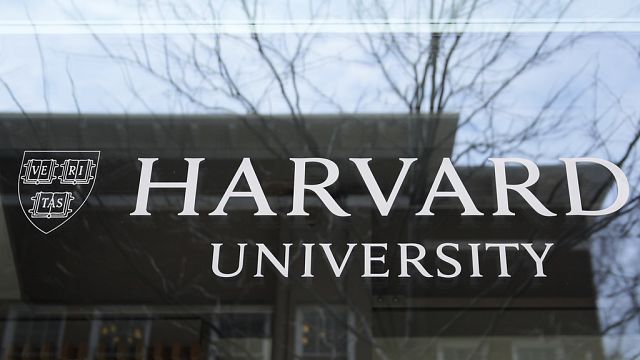**Introduction:**
In a dramatic turn of events, the Trump administration has dealt a severe blow to Harvard University by revoking its ability to enroll international students. This decision has thrown the prestigious Ivy League institution into turmoil, with thousands of foreign students facing the daunting prospect of transferring to other schools or leaving the country. The clash between Harvard and the White House has escalated, revealing deep-seated tensions and raising critical questions about academic freedom, national security, and the future of international education in America.
**Background Context:**
Harvard University, renowned as the oldest and wealthiest educational institution in the United States, has found itself at the center of a fierce confrontation with the Trump administration. The government’s actions stem from accusations of fostering an unsafe campus environment, alleged coordination with the Chinese Communist Party, and defiance of reporting requirements related to foreign students. This clash represents a broader struggle between academic autonomy and political intervention, highlighting the complexities of navigating ideological differences in the realm of higher education.
**Main Story Details:**
The Department of Homeland Security’s decision to bar Harvard from enrolling foreign students has sent shockwaves through the university community and beyond. With nearly 6,800 international students comprising over a quarter of its student body, Harvard now faces the daunting task of guiding these students through a tumultuous period of uncertainty. The administration’s allegations of anti-American activities and ties to the Chinese Communist Party have sparked a firestorm of controversy, with Harvard vehemently denying the accusations and condemning the punitive measures as unlawful and retaliatory.
“This retaliatory action threatens serious harm to the Harvard community and our country, and undermines Harvard’s academic and research mission,”
Harvard’s clash with the Trump administration underscores the broader tensions between academia and government oversight, as well as the implications for academic freedom and institutional autonomy. The repercussions of this conflict extend far beyond the confines of Harvard’s campus, raising critical questions about the role of elite institutions in shaping national discourse and the boundaries of political interference in academic affairs.
**Expert Analysis:**
Ted Mitchell, president of the American Council on Education, has condemned the administration’s actions as an “illegal, small-minded” overreach that could have far-reaching implications for international students seeking education in the United States. The crackdown on Harvard’s international enrollment reflects a broader trend of using regulatory mechanisms to enforce political agendas, creating a chilling effect on academic freedom and international exchange programs.
“I worry that this is sending a very chilling effect to international students looking to come to America for education,”
The outcry from advocacy groups and free speech organizations underscores the concerns over the erosion of civil liberties and the weaponization of regulatory frameworks for ideological purposes. The targeting of Harvard’s international students as part of a broader crackdown on higher education raises troubling questions about the future of academic collaboration and intellectual exchange in an increasingly polarized and politicized environment.
**Broader Implications:**
The revocation of Harvard’s certification in the Student and Exchange Visitor Program represents a significant escalation in the government’s efforts to exert control over academic institutions and their international student populations. The implications of this decision extend beyond Harvard to other universities grappling with similar challenges of balancing academic freedom with national security concerns.
The clash between Harvard and the Trump administration highlights the complexities of navigating geopolitical tensions, ideological differences, and regulatory compliance in an era of heightened scrutiny and political polarization. The fallout from this confrontation may reverberate across the higher education sector, shaping policies and practices related to international student enrollment, campus security, and academic freedom.
**Future Outlook:**
As Harvard grapples with the repercussions of the government’s actions, the future remains uncertain for its international student community and the broader academic community. The outcome of this high-stakes battle will have far-reaching consequences for the university’s reputation, its educational mission, and the principles of academic freedom that underpin higher education institutions.
The evolving landscape of international education in the United States, coupled with the shifting dynamics of political influence and regulatory oversight, poses significant challenges for universities seeking to uphold their academic integrity and global engagement. The outcome of this conflict will shape the future trajectory of Harvard and serve as a bellwether for the broader struggles facing academic institutions in an era of increasing geopolitical tensions and ideological divisions.
**Conclusion:**
The clash between the Trump administration and Harvard University over the enrollment of foreign students has laid bare the fault lines between academic autonomy and political interference, raising critical questions about the future of international education in America. As the battle for Harvard’s international students unfolds, it underscores the complex interplay of power, ideology, and institutional values that define the landscape of higher education in the 21st century. The outcome of this conflict will not only shape the fate of Harvard but also serve as a litmus test for the broader challenges facing academic institutions in an era of heightened scrutiny and political polarization.
Originally reported by Africa News
Read more at: http://www.africanews.com/2025/05/23/trump-administration-bars-harvard-from-enrolling-foreign-students/

